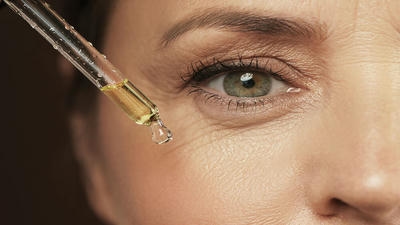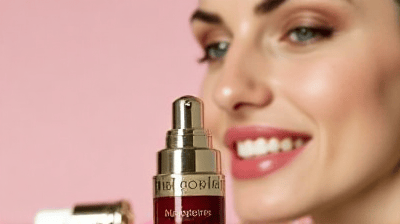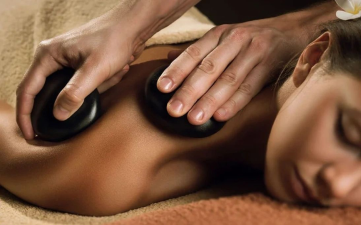
Understanding the Aging Process
What Happens to Our Skin as We Age?
Aging is a natural process influenced by both intrinsic and extrinsic factors. Intrinsic aging, sometimes referred to as chronological aging, is the result of genetic factors and biological changes within the body. Extrinsic aging, on the other hand, is caused by environmental factors such as sun exposure, pollution, and lifestyle choices.
Key changes that occur in the skin due to aging include:
-
Loss of Collagen and Elastin: Collagen and elastin are essential proteins that provide structure and elasticity to the skin. As we age, the production of these proteins decreases, leading to sagging and wrinkles.
-
Decreased Cell Turnover: The skin’s natural ability to regenerate slows down with age, resulting in a buildup of dead skin cells and a dull appearance.
-
Reduced Natural Moisture: Aging skin tends to lose moisture and oils, leading to dryness and loss of plumpness.
-
Sun Damage: Accumulated sun exposure can lead to hyperpigmentation, fine lines, and a rough texture.
-
Changes in Fat Distribution: With age, the distribution of fat in the face may change, resulting in a loss of volume in some areas and the appearance of sagging in others.
The Role of Anti-Aging Serums
Anti-aging serums are specialized formulations designed to deliver potent active ingredients deep into the skin to address signs of aging. Unlike creams or lotions, serums typically have a lighter consistency and a higher concentration of active ingredients, making them effective for targeting specific concerns.
What to Expect from an Anti-Aging Serum
-
Targeted Treatment: Serums are usually formulated to address specific issues such as fine lines, wrinkles, uneven skin tone, and loss of firmness.
-
Quick Absorption: Due to their lightweight texture, serums are quickly absorbed into the skin, allowing for faster delivery of active ingredients.
-
Complementary Use: Serums can be used in conjunction with other skincare products, such as moisturizers and sunscreens, for an enhanced effect.
Key Ingredients in Anti-Aging Serums
When exploring the effectiveness of anti-aging serums, it's essential to understand the science behind the ingredients commonly used in these formulations. Below is a detailed analysis of some of the most effective anti-aging components:
1. Retinoids
What are They?: Retinoids, including retinol and retinaldehyde, are derivatives of vitamin A. They are among the most researched and proven ingredients in skincare.
How They Work: Retinoids promote cell turnover and stimulate collagen production. They help reduce the appearance of fine lines, wrinkles, and hyperpigmentation by encouraging the shedding of old skin cells and promoting the growth of new ones.
Efficacy: Numerous studies have demonstrated the effectiveness of retinoids in improving skin texture and reducing visible signs of aging. They are often recommended as one of the first lines of defense against aging.
Considerations: Retinoids can cause irritation, especially when first introduced to a skincare routine. It is advisable to start with a lower concentration and gradually increase usage.
2. Peptides
What are They?: Peptides are short chains of amino acids that serve as building blocks for proteins in the skin, including collagen and elastin.
How They Work: Peptides signal to the skin to increase collagen production, helping to improve skin texture, firmness, and elasticity. They can also have moisturizing properties that enhance the skin barrier.
Efficacy: Research indicates that specific peptides can effectively reduce the appearance of fine lines and wrinkles. They offer a gentle approach to anti-aging without the irritation associated with potent ingredients like retinoids.
3. Hyaluronic Acid
What is It?: Hyaluronic acid is a naturally occurring substance in the body that can hold up to 1000 times its weight in water.
How It Works: It acts as a humectant, attracting moisture to the skin and helping to maintain hydration levels. This plumping effect makes the skin appear more youthful and reduces the visibility of fine lines.
Efficacy: Hyaluronic acid is well-supported by research for its hydrating properties, making it a popular ingredient in anti-aging formulations.
Considerations: It is suitable for all skin types, including sensitive skin. Look for serums that contain hyaluronic acid in conjunction with other active ingredients for maximum efficacy.
4. Vitamin C
What is It?: Vitamin C, or ascorbic acid, is a powerful antioxidant known for its brightening and anti-aging properties.
How It Works: Vitamin C protects the skin from free radicals generated by UV exposure and pollution. It also inhibits melanin production, reducing the appearance of dark spots and promoting a more even skin tone.
Efficacy: Clinical studies show that topical vitamin C can improve skin texture, tone, and firmness while providing antioxidant protection.
Considerations: Vitamin C can be unstable in certain conditions. Look for serums in opaque packaging designed to protect the formula from light and air.
5. Alpha Hydroxy Acids (AHAs)
What are They?: AHAs, such as glycolic acid and lactic acid, are chemical exfoliants derived from fruits and milk.
How They Work: AHAs slough away dead skin cells on the surface, promoting cell turnover and revealing fresher, smoother skin underneath. They also help in improving skin hydration.
Efficacy: Research supports the use of AHAs in addressing signs of aging, as they can effectively minimize the appearance of fine lines and improve overall skin texture.
Considerations: While AHAs provide benefits, they can increase sun sensitivity. It is essential to use sunscreen when incorporating AHAs into your routine.
6. Coenzyme Q10
What is It?: Coenzyme Q10, or ubiquinone, is an antioxidant naturally found in the body.
How It Works: It helps produce energy in skin cells and protects against oxidative stress that can lead to aging.
Efficacy: Studies suggest that topical application of coenzyme Q10 can improve skin tone and reduce the depth of wrinkles over time.
7. Niacinamide
What is It?: Niacinamide, or vitamin B3, is a versatile ingredient that offers multiple skin benefits.
How It Works: Niacinamide improves the skin barrier function, enhances hydration, and has anti-inflammatory properties. It also helps reduce hyperpigmentation and improves overall skin texture.
Efficacy: Research indicates that niacinamide can effectively reduce fine lines, enhance skin elasticity, and provide a more even skin tone.

How to Choose the Right Anti-Aging Serum
Skin Type Considerations
Choosing the right serum depends largely on your skin type and specific concerns. Here are some tips for selecting an anti-aging serum based on your skin type:
-
Oily Skin: Look for lightweight, oil-free serums containing ingredients like hyaluronic acid and niacinamide to prevent excess oil and breakouts.
-
Dry Skin: Choose serums rich in hydrating ingredients such as hyaluronic acid and peptides to replenish moisture and improve skin texture.
-
Sensitive Skin: Opt for serums with gentle ingredients like niacinamide or aloe vera, avoiding potent actives like retinoids or AHAs initially.
-
Combination Skin: A balanced formula with a mix of hydrating and anti-aging ingredients might work best. Look for serums that target both oily and dry areas.
Ingredient Concentration
-
Start with Lower Concentrations: If you are new to a particular active ingredient, start with lower concentrations to see how your skin responds before increasing the dose.
-
Layering Actives: Be mindful when layering serums with different active ingredients. Some combinations may lead to irritation, while others can enhance effectiveness.
Formulation and Packaging
-
Choose Stability: Select serums packaged in dark, airtight containers to ensure ingredient stability and efficacy.
-
Look for Additional Benefits: Some serums contain additional beneficial ingredients such as antioxidants, preservatives, or botanical extracts that can support overall skin health.
Patch Test New Products
- Always perform a patch test before introducing a new serum into your routine to identify any adverse reactions. Apply a small amount of the product to your wrist or inner elbow and observe for irritation or allergic reactions over 24 hours.
Application Techniques for Anti-Aging Serums
To maximize the benefits of your anti-aging serum, use the proper application techniques:
-
Cleanse Your Skin: Start with a gentle cleanser to remove impurities and prepare your skin for product absorption.
-
Apply Toner (Optional): If you use a toner, apply it after cleansing to restore pH balance and enhance serum efficacy.
-
Use the Right Amount: A pea-sized amount of serum is generally sufficient for the entire face. Adjust the amount based on specific product directions.
-
Pat, Don’t Rub: Gently pat the serum into your skin using your fingertips, focusing on areas of concern. This technique helps with absorption and avoids tugging at the skin.
-
Follow with Moisturizer: After applying the serum, follow up with a moisturizer to lock in hydration and enhance the overall effect.
-
Include Sunscreen in the Morning: If using potent anti-aging ingredients like retinoids or AHAs, always apply sunscreen in the morning to prevent sun damage.
Conclusion
Anti-aging serums have become essential tools in the quest for youthful skin, offering a wide range of active ingredients that address various concerns. By understanding the science behind these ingredients and how they work, you can make informed choices when selecting the right serum for your skin type and needs.
Incorporating a well-formulated anti-aging serum into your skincare regimen can lead to significant improvements in texture, hydration, and overall skin health. Remember, consistency is key, and it's important to choose products that meet your unique concerns while practicing good skincare habits.
Navigating the world of anti-aging skincare may seem complex, but with the right knowledge and approach, you can harness the power of these serums to maintain a radiant and youthful complexion for years to come.



